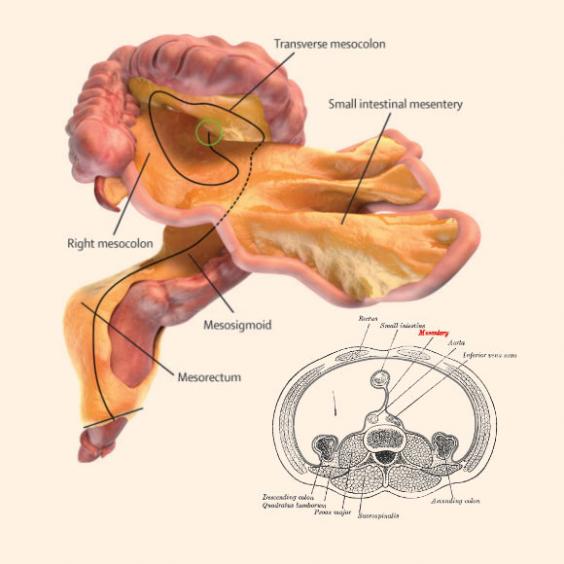A new organ has been discovered hiding in plain sight inside the human body. Known as the Mesentery, it was previously thought to be just a few fragmented structures in the digestive system. But scientists have realised it is in fact one, continuous organ. Although its function is still unclear, the discovery opens up “a whole new area of science,” according to J Calvin Coffey, a researcher at the University Hospital Limerick who first discovered it.
"When we approach it like every other organ… we can categorise abdominal disease in terms of this organ," he said.“Now we have established anatomy and the structure. The next step is the function. If you understand the function you can identify abnormal function, and then you have disease.
“Put them all together and you have the field of mesenteric science.” The research has been published in The Lancet medical journal. Following its reclassification, medical students are now being taught that the mesentery is a distinct organ. Gray’s Anatomy, the world’s most famous medical textbook, has been updated to include the new definition.

A digital representation of the mesentery and small and large intestines (J Calvin Coffey, D Peter O’Leary, Henry Vandyke Carter). Medical students and researchers can now investigate what role the mesentery might play in abdominal diseases, which it is hoped could ultimately lead to new treatments. The organ is a double fold of peritoneum - the lining of the abdominal cavity - that holds our intestine to the wall of our abdomen. It was described by the Italian polymath Leonardo da Vinci in 1508, but it has been ignored throughout the centuries, until now.
Although there are generally considered to be five organs in the human body, there are in fact now 79, including the mesentery. The heart, brain, liver, lungs and kidneys are the vital organs, but there are another 74 that play a role in keeping us healthy.
- Post By : TASA

No comments :
Post a Comment